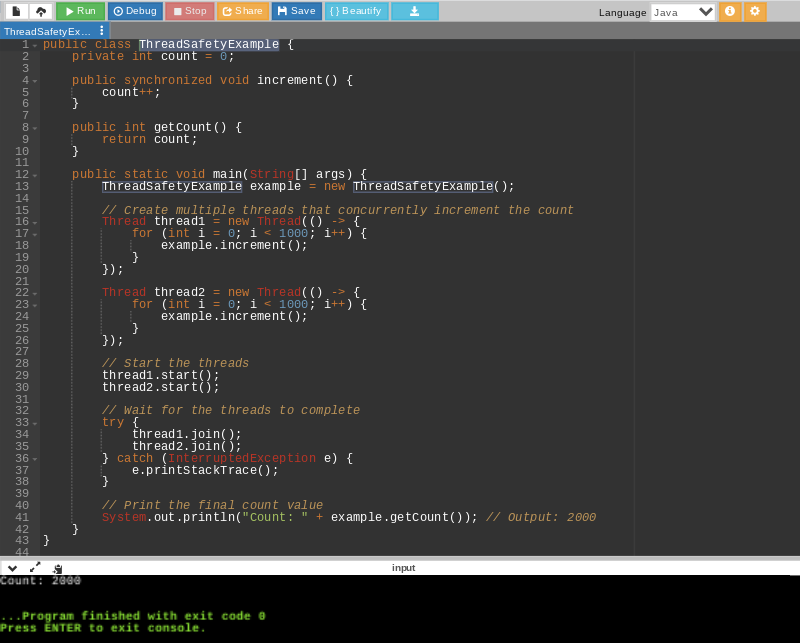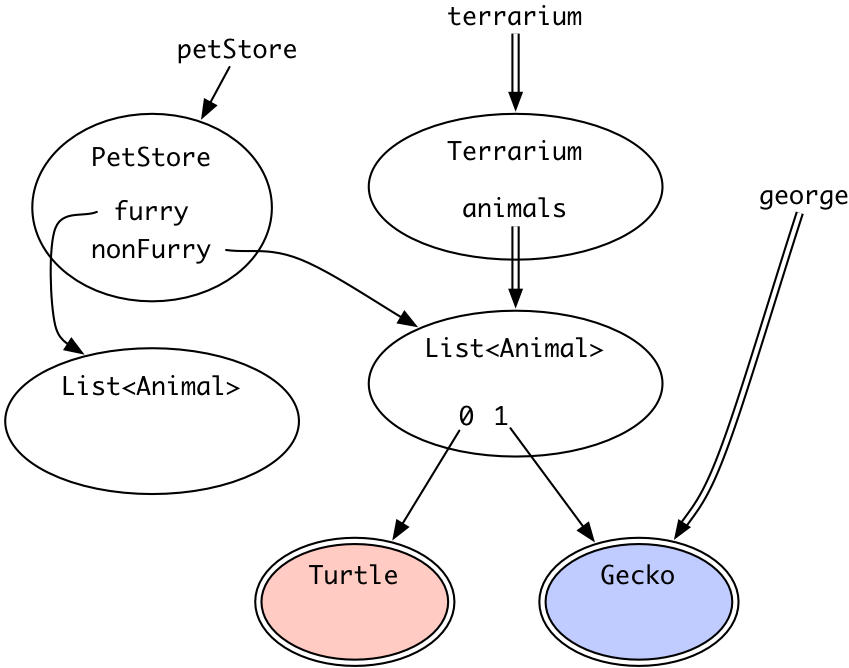Why Are Strings Immutable in Java? Discovering the Layout Choices
Why Are Strings Immutable in Java? Discovering the Layout Choices
Blog Article
Discovering the Advantages of Unalterable Strings in Modern Programs Paradigms
In the world of modern-day programs paradigms, the principle of immutable strings stands as a cornerstone of robust software development. The advantages they provide surpass plain ease; they essentially modify the method data is handled within applications. By embracing immutable strings, programmers can make certain enhanced data honesty, boosted thread safety and security, simplified debugging processes, raised protection steps, and efficient efficiency optimization. These benefits act as a testimony to the profound influence that welcoming immutability can carry the dependability and efficiency of software program systems.
Boosted Data Honesty

By preventing the alteration of string things, immutability eliminates the threat of unintended adjustments to the data they hold. This not only enhances the security of the info yet also boosts the reliability of the code that relies upon these strings.
Immutability also sustains much safer multithreading settings, as concurrent accessibility to immutable strings does not pose the danger of data corruption through synchronised modifications. This property simplifies the process of handling strings in parallel programs circumstances.
Basically, immutability serves as a safety shield around the data saved within strings, enhancing their stability by making certain that once defined, their worths continue to be unchanged throughout the program's execution.

Improved String Safety And Security
Immutable strings boost the string safety and security of programs by making sure that once a string object is developed, its worth can not be changed. This building gets rid of the threat of concurrent strings trying to change the same string simultaneously, which can result in information corruption or irregular states in the program - Why are strings immutable in Java?. In a multi-threaded environment, where numerous threads gain access to and control information concurrently, the immutability of strings gives a level of safety by ensuring that the data remains the same throughout its lifecycle
Streamlined Debugging Processes
Offered the improved string safety and security facilitated by unalterable strings, a significant benefit emerges in the world of streamlined debugging processes. Immutable strings, when produced, can not be changed, making it less complicated to trace the flow of data and determine the source of pests in a program. This immutability ensures that strings stay constant throughout the implementation of the program, decreasing the possibility of unforeseen adjustments that can result in mistakes.
When debugging with mutable strings, developers typically run into concerns where a string's worth is changed unintentionally, making it challenging to pinpoint the origin of a bug. However, with immutable strings, the information stays unmodified, allowing programmers to concentrate on assessing the actual reasoning of the code as opposed to finding where and when a string was modified incorrectly.
Furthermore, immutable strings simplify the debugging procedure by allowing much easier recreation of pests. Because immutable strings do not alter state, programmers can recreate and research insects better, bring about quicker identification and resolution of issues within the codebase. This structured debugging workflow inevitably adds to higher software quality and boosted overall growth effectiveness.

Boosted Security Actions
Enhancing information defense and strengthening system honesty, the application of unalterable strings in software program applications adds significantly to increased security actions. Unalterable strings, when produced, can not be modified, giving an essential defense versus malicious meddling or unapproved access. By ensuring that sensitive information stored in strings remains unaltered throughout the program's implementation, the danger of information breaches or injection strikes is significantly lowered. Why are strings immutable in Java?. Immutable strings additionally play an important role in protecting against typical safety and security vulnerabilities such as barrier overflows and SQL shot assaults, as attempts to control string data at runtime are inherently restricted.
Furthermore, the immutability of strings enhances the predictability of program habits, making it much easier to validate inputs and stop unexpected changes that might jeopardize safety. This predictability simplifies the process of auditing and validating code, allowing developers to determine possible safety and security loopholes better. In general, incorporating unalterable strings right into software advancement techniques not just enhances the effectiveness and dependability of applications however additionally strengthens their durability against safety threats.
Efficient Performance Optimization
Structure upon the structure of increased security measures achieved through the use of unalterable strings, a vital element to take into consideration in software development is reliable efficiency optimization. When dealing with mutable strings, procedures like concatenation or substring production usually lead to the creation of new string objects, bring about memory expenses address and enhanced handling time. Nonetheless, with immutable strings, these procedures can be maximized to enhance performance. By allowing strings to stay stable and constant, immutable strings facilitate far better memory management and caching opportunities, ultimately boosting the general effectiveness of the software application.
Immutable strings likewise play a vital function in multithreaded atmospheres by promoting string security. Why are strings immutable in Java?. Considering that immutable strings can not be customized once created, they can be shared throughout strings without the danger of unforeseen adjustments, decreasing the requirement for synchronization mechanisms and improving concurrency. Moreover, immutable strings streamline debugging processes as developers can rely on that a string's value will certainly stay consistent throughout the program's execution, getting rid of prospective mistakes brought on by mutable state changes. Finally, making use of immutable strings not only enhances protection yet likewise dramatically adds to the reliable performance optimization of contemporary software systems.
Final Thought
To conclude, the benefits of utilizing immutable strings in modern programming paradigms can not be overemphasized. Boosted data honesty, boosted string safety and security, simplified debugging processes, enhanced safety and security actions, and reliable performance optimization all add to the total efficiency of programming tasks. By incorporating unalterable strings into programs practices, developers can gain from a much more trusted and durable codebase.
Immutability, a key function of strings in programming languages such as Java and Python, guarantees that once a string things is produced, it can not be modified or modified.Unalterable strings boost the string security of programs by guaranteeing that once a string item is developed, its worth can not be modified. Unalterable strings also play a vital duty in stopping typical safety and security susceptabilities such as buffer overflows and SQL injection assaults, as attempts to manipulate string data useful reference at runtime are naturally limited.
By allowing strings to continue to be stable and continuous, immutable strings assist in check over here better memory monitoring and caching possibilities, inevitably improving the total efficiency of the software program.
Unalterable strings streamline debugging processes as designers can rely on that a string's value will certainly stay constant throughout the program's execution, getting rid of possible mistakes caused by mutable state adjustments.
Report this page